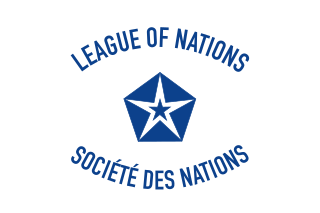
The League of Nations was the first worldwide intergovernmental organisation whose principal mission was to maintain world peace. It was founded on 10 January 1920 by the Paris Peace Conference that ended the First World War. The main organization ceased operations on 20 April 1946 but many of its components were relocated into the new United Nations.

The Air Ministry was a department of the Government of the United Kingdom with the responsibility of managing the affairs of the Royal Air Force, that existed from 1918 to 1964. It was under the political authority of the Secretary of State for Air.

Edgar Algernon Robert Gascoyne-Cecil, 1st Viscount Cecil of Chelwood,, known as Lord Robert Cecil from 1868 to 1923, was a British lawyer, politician and diplomat. He was one of the architects of the League of Nations and a defender of it, whose service to the organisation saw him awarded the Nobel Peace Prize in 1937.
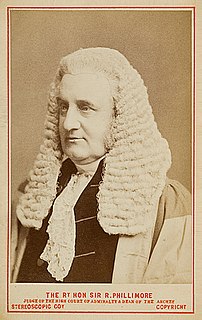
Baron Phillimore, of Shiplake in the County of Oxford, is a title in the Peerage of the United Kingdom. It was created in 1918 for the former Judge of the High Court of Justice and Lord Justice of Appeal, Sir Walter Phillimore, 2nd Baronet. The Phillimore Baronetcy, of The Coppice, had been created in the Baronetage of the United Kingdom on 28 December 1881 for his father Sir Robert Phillimore, who was also a noted lawyer and judge. The first Baron was succeeded by his son, the second Baron.
A war cabinet is a committee formed by a government in a time of war to efficiently and effectively conduct that war. It is usually a subset of the full executive cabinet of ministers, although it is quite common for a war cabinet to have senior military officers and opposition politicians as members.
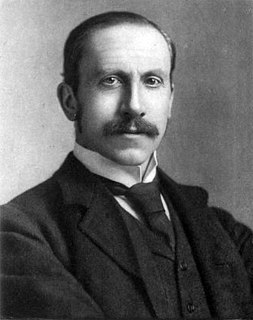
Alfred Milner, 1st Viscount Milner, was an English statesman and colonial administrator who played a role in the formulation of British foreign and domestic policy between the mid-1890s and early 1920s. From December 1916 to November 1918, he was one of the most important members of Prime Minister David Lloyd George's War Cabinet.

William George Arthur Ormsby-Gore, 4th Baron Harlech,, was a British Conservative politician and banker.

James Eric Drummond, 7th Earl of Perth,, was a British politician and diplomat who was the first Secretary-General of the League of Nations (1920–1933).
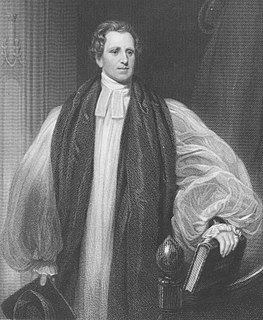
Daniel Wilson was an English Bishop of Calcutta.

Sir Robert Joseph Phillimore, 1st Baronet, was an English judge and politician. He was the last Judge of the High Court of Admiralty from 1867 to 1875 bringing an end to an office that had lasted nearly 400 years.

Walter George Frank Phillimore, 1st Baron Phillimore,, known as Sir Walter Phillimore, 2nd Baronet, from 1885 to 1918, was a British lawyer and judge.
The Covenant of the League of Nations was the charter of the League of Nations. It was signed on 28 June 1919 as Part I of the Treaty of Versailles, and became effective together with the rest of the Treaty on 10 January 1920.
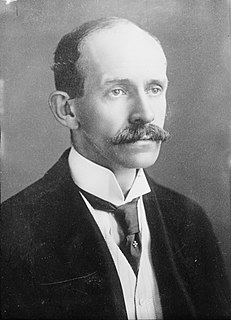
Hugh Richard Heathcote Gascoyne-Cecil, 1st Baron Quickswood PC, styled Lord Hugh Cecil until 1941, was a British Conservative Party politician.
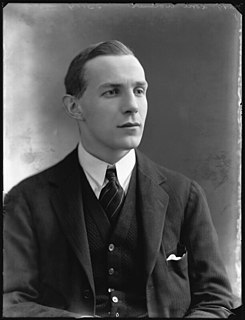
Roundell Cecil Palmer, 3rd Earl of Selborne, CH, PC, known as "Top Wolmer" and styled Viscount Wolmer from 1895 to 1941, was a British administrator, intelligence officer and Conservative politician.
Dame Adelaide Lord Livingstone, DBE was an American-British human rights activist responsible for organising the Peace Ballot in 1934–35 to gauge the British public's sentiment in the winds of upcoming war with a rearming and aggressive Germany led by Adolf Hitler.
Stamford was a constituency in the county of Lincolnshire of the House of Commons for the Parliament of England to 1706 then of the Parliament of Great Britain from 1707 to 1800 and of the Parliament of the United Kingdom from 1801 to 1918. It was represented by two Members of Parliament until 1868 when this was reduced to one.

Aneurin Williams was a British Liberal Party politician.
The League of Nations Union (LNU) was an organization formed in October 1918 in Great Britain to promote international justice, collective security and a permanent peace between nations based upon the ideals of the League of Nations. The League of Nations was established by the Great Powers as part of the Paris Peace Treaties, the international settlement that followed the First World War. The creation of a general association of nations was the final one of President Woodrow Wilson's Fourteen Points. The LNU became the largest and most influential organisation in the British peace movement. By the mid-1920s, it had over a quarter of a million registered subscribers and its membership eventually peaked at around 407,775 in 1931. By the 1940s, after the disappointments of the international crises of the 1930s and the descent into World War II, membership fell to about 100,000.
Sir Henry Josceline Phillimore, OBE, PC was an English barrister and judge, who served as a Lord Justice of Appeal from 1968 to 1974.
The United Kingdom and the League of Nations played central roles in the diplomatic history of the interwar period 1920-1939 and the search for peace. British activists and political leaders help plan and found the League of Nations, provided much of the staff leadership, and Britain played a central role in most of the critical issues facing the League. The League of Nations Union was an important private organization that promoted the League in Britain. By 1924 the League was broadly popular and was featured in election campaigns. The Liberals were most supportive; the Conservatives least so. From 1931 onward, major aggressions by Japan, Italy, Spain and Germany effectively ruined the League in British eyes.












